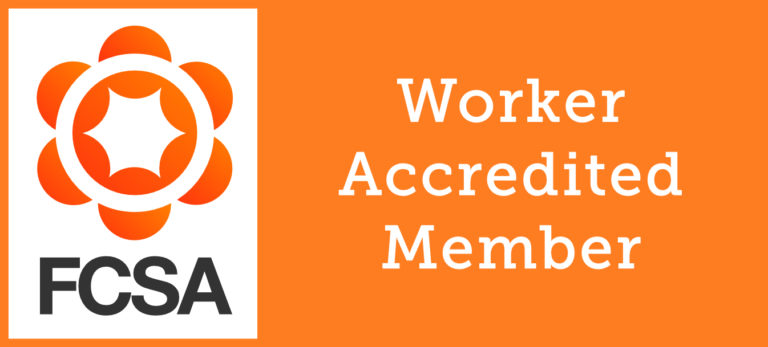The robots are coming, and they’re not taking your jobs – they’re taking your best candidates.
Some argue that AI should be used as an assistant, not a replacement, for recruitment. Recruiters argue that cost and time efficiencies are worth the security and legal risk, long-term brand damage and loss of expert talent. We disagree: there is no place for emerging tech at any point in the recruitment process, in-house or for staffing agencies. Here’s why.
The 3 Ways Artificial Intelligence Is Losing Your Best Candidates
- AI Is Compensating for Poor Recruiter Effort at Application Stage
Up to 99% of Fortune 500 companies, and 70% of all companies globally, are already implementing AI at some stage of their hiring process. Specifically, Harvard Business School reveals that 90% of employers are using automated tracking software to go through hundreds of applications per role – despite most hiring HR teams actively acknowledging that these systems wrongly exclude qualified candidates.
Any system or tool is only as effective as the individuals who have both created it and use it every day. Automated tracking relies on very specific data input and management, which means that if role criteria is too precise, and if hiring managers cannot work with systems to adapt and broaden selection criteria – which is overwhelmingly still the case – the systems must exclude any resumé that does not contain exact matching keywords. Without close monitoring of this tech, and as most systems are still unable to provide clear feedback over reasons for the exclusions they make, excellent candidates are being missed at early stages of the hiring process, long before an expert recruiter even has a chance to glance at their profile.
A downturn in the job market after The Great Resignation and post-Covid layoffs saw a huge spike in applications vs job adverts. The average volume of applications per job advert grew by 59% in the past year alone, presenting staffing specialists with multiple hundreds of CVs to comb through for every role worked. However, the real reason for high volumes of irrelevant applications is not candidate desperation or even their own use of AI (which this year is growing rapidly). The true culprit behind hundreds of unsuitable CVs per role is poor quality job advertisement.
In 2024, most recruiters are still copying and pasting client job descriptions into LinkedIn, often without properly proofreading and certainly not analysing them through the eyes of potential candidates. The best talent will be turned off from applying to adverts containing any of the following (and too often, ads include most/all of these):
- Eye-watering length due, owing too much information that could easily be found on the employer website
- Endless requirements, the majority of which are industry- and role-standard and therefore distracting from the few most important role duties
- Focus on the employer’s identity and goals, rather than how the organisation can provide the candidate with an opportunity to meet their own career goals
- Preoccupation with tactical output or short-term deliverables expected from the jobseeker, rather than meaningful work and strategic achievements that excite interest
- Generic paragraphs on equal opportunities that give the impression of an employer wanting to appear diverse and inclusive, but doing little to actively support DEI
- Waffle about career development with no specific evidence to substantiate that they actually invest in training or prioritise progression
- Advertising a ‘competitive salary’ or failing to mention remuneration altogether, as currently practised by around half of all employers. Doug Baird, CEO of recruitment firm New Street Consulting Group, advises: ‘It’s rare that a business would not be open to negotiate for the right candidate. Risk comes in not giving any steer on salary. Not only could candidates be left thinking a role may not pay enough, but as transparency becomes ever more important within employer/employee relations, it can provide insights into the business’ employer value proposition.’
Instead of relying on AI to sift through resumes, recruiters can dramatically improve the quality of candidate applications by improving the quality of the job advert they write. Consultants will attract lower volumes yet a far more suitable calibre of applicants with a job advert that accurately describes the level, expertise and personality type of the ideal hire, and an exciting yet realistic picture of the opportunity that appeals to those who are better matched for the role. Spending more time at the beginning of the process will pay dividends later on, saving hours and even days at further stages of screening, assessment and interviewing.
(And don’t be tempted to use AI to write your job advert, either. Recruiters who simply run job descriptions through automated systems will end up with very similar ads to their competitors who also use AI. Virtually identical ads will set off jobseeker alarm bells for those aware of the rise in fake job adverts. If working contingent rather than retained, recruiters will be directly competing for prime space on LinkedIn and other job boards. Though Artificial Intelligence can write a basic ad structure using correct grammar and spelling, it cannot and will never be able to craft a compelling narrative that directly appeals to the hearts and minds of your human jobseekers, and therefore win their applications.)
- Human are Biased, But Machines Much More So – Quality Applications are Being Missed Every Day
Reports of AI-driven discrimination have been prevalent ever since emerging technologies were introduced into the hiring process. However, this bias is worsening, and shows signs of impacting younger generations more than previous demographics, begging worrying questions on the assessment and therefore capabilities and expertise of the future workforce. More than a third (37%) of workers aged between 16 and 34 have experienced bias during the recruitment process, compared to 22% of jobseekers of all ages, according to findings from ethical hiring platform Applied.
The adoption of emerging technologies, which by nature are continually fast changing and little understood by employers or regulators, is implicated in increasing instances of application bias:
- Bloomberg reported in 2024 that Chat GPT excluded jobseekers from ethnic minority backgrounds. When ranking 1,000 CVs, GPT 3.5 favoured candidate names associated with specific demographics, to an extent that would fail official benchmarks used to assess employment discrimination against minority groups. This racial bias was evident for every single one of the roles hired by ChatGPT in the experiment.
- The AI applicant screening platform of enterprise management platform Workday is believed to systematically discriminate against black applicants, older applicants and applicants with disabilities. This year the U.S. District Court for California is dealing with a legal claim in which it recognised that even though Workday did not intentionally discriminate, the company’s AI had an unintended but disproportionately negative impact on candidates from minority groups.
- The American Civil Liberties Union has filed an official complaint against insurance company Aon for its AI-based screening tools that are alleged to have built-in biases against multiple diverse applicant groups. ACLU senior attorney Olga Akselrod states, ‘Aon’s assessments carry an unacceptably high risk of screening people out based on who they are and not whether they can do the job, particularly on the basis of race or disabilities.’
Not only is AI exacerbating the existing unconscious biases of hiring managers and the individuals who collect and store candidate data, it is actually creating completely new opportunities for further bias and discrimination. In addition to screening resumes, AI hiring tools attempt to measure and rate applicants’ personality traits. Emerging technologies are screening out candidates for ‘cultural fit’ and personal qualities based on how they play a video game or speak and move in a pre-recorded video, without any hiring manager interaction or job-related assessment. Video analysis technology has difficulty just registering the faces of non-white applicants, let alone the quality of pre-recorded video content of ethnic minority candidates, and this tech discriminates against applicants with disabilities that affect their appearance compared to non-disabled applicants.
Some hiring managers claim that anonymising CVs by removing demographic information such as first and last names, University/school name, graduation year or hobbies can address some of these initial biases in hiring. However, blind screening proves irrelevant when video analysis tools actively select for specific criteria, regardless of the care taken to anonymise paper applications.
Employers understand the value of diversity and inclusion more than ever before: diverse teams are more creative, better at problem-solving and create products and services that appeal to millions of other diverse audience groups, directly benefiting business revenue and profit. With ethnic minority talent representing almost 1 in 5 of the UK workforce, 1 in 4 workers having a disability and around half of the entire workforce being female, non-white males and other diverse groups now make up the majority of talent pools. Recruitment consultants who use AI are needlessly missing out on hundreds of potential placements every year.
Staffing agencies invest multiple thousands and even millions on job boards and networking technologies to expand candidate databases, when the answer is right in front of them: existing applications from ignored but highly qualified candidates. By going back to the old-fashioned method of hiring human to human, staffing consultants can eliminate automated bias (whilst working to improve existing human biases) and access the best candidates faster, cheaper and for better return on their time and investment.
- Tech Worsens an Increasingly Disconnected Candidate Experience, Pushing Jobseekers Towards Competitors Who Appear to Care More
Most candidates are worried about the use of AI in hiring – and they’re right to be. A July 2024 report from recruitment agency Hays found that 80% of jobseekers want to be informed when emerging technologies are used to assess their applications. Candidates are increasingly concerned that Artificial Intelligence will undervalue and misrepresent their skills and experience, compared to specialist recruitment consultants. With strong mutual relationships at the core of a successful hiring process, recruiters need to listen to candidate fears and act promptly in response, or risk damaging candidate trust irreparably.
Adecco Group’s 2024 Global Workforce of the Future survey reported in October 2024 that whilst 46% of workers expressed confidence in their leaders’ skills to work with AI in business processes such as hiring, 76% valued the human expertise of recruiters, up from 64% last year. Connection is at the heart of successful recruitment, and recruiter skills are being woefully underutilised because of a reliance on technology.
Rebecca Napier, IT Business Partner at Midlands-based recruitment agency GI Group, which employs over 500 recruiters, advises: ‘Many people still underestimate the power and challenges of AI technology which will inevitably lead to great risks and recruitment challenges down the road. It is the role of HR professionals to provide an honest, fair and transparent recruitment process to each candidate and through the introduction of AI tech, this can’t always be guaranteed. The empathetic and personal approach of a human cannot be underestimated, on both the side of the candidate and the HR professional.’
If recruitment were not a people-focused competency, technology would have replaced humans long ago. Experienced workers of every background and age are fully capable of finding jobs that appeal to them, writing applications that best represent them, preparing for and delivering successful interviews, and managing their own offers and onboarding. Experienced HR departments are also fully capable of creating a structured hiring process that complies with employer requirements. However, employers, employees and recruiters all know that the value of recruitment consultants is not in the what, but in the how.
The right consultant proves the difference not only in filling or not filling a role, and in negotiating an offer vs a rejection, but between the right hire and the wrong one. Skilled recruiters coach candidates through incredibly difficult periods in their lives and careers to get and keep the role of their dreams. Staffing specialists build long-term talent strategies and entire labour forces from scratch that achieve record-breaking growth for their client companies. AI can measure a Word document against an arbitrary list of requirements, but it can’t do what matters, for candidates or for clients.
Recruitment is life-changing for candidates and business-critical for organisations: we all need to remember it, and act like it, now more than ever before.
Keep Your Best Candidates With the Best (Human) Payment Partners
Once you’ve reclaimed your high quality candidates from the clutches of AI screening, a high quality experience will retain your candidates throughout their assignments and help you place them time again throughout their career. Every touchpoint matters, making high quality recruitment partnerships essential to a successful placement.
Generate’s payroll specialists are committed to providing the best for every contractor. We guarantee 100% on-time payment, every time, to replace stress and frustration with a reliable, enjoyable contracting experience.











